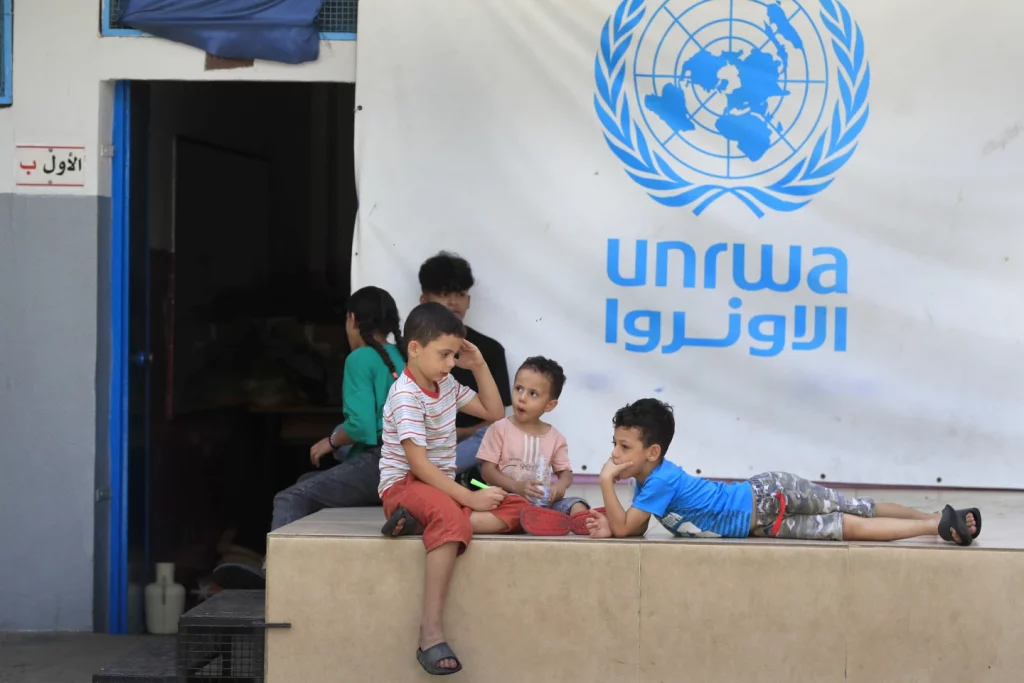The ruse of Israel that the UN agency for Palestinian refugees (UNRWA) harboured 12 Palestinians working for Hamas that launched the attack on Israel 7 October, 2023, has fallen flat. An independent group of experts headed by former French Foreign Minister Catherine Colonna has nailed the lie in its report released recently. The importance of this revelation lies in the fact that it has exposed the hollowness and insensitivity of countries, including the US, which used the unsubstantiated allegation by Israeli Prime Minister Benjamin Netanyahu as an alibi for stopping their financial contributions to the UN agency crippling its functioning. An immediate fallout of the report is the announcement on 26 April by Germany and a few other countries to resume aid to the UN agency. It is indeed a welcome development that UNRWA has won back support from some donor countries following the independent review.
On 26 January, the UN agency had stated that 12 of its 13,000 Palestinian employees in Gaza were accused by Israel of involvement in the massacre of Israeli civilians on 7 October, 2023 during the assault by Hamas militiamen that triggered the current war. What followed this development was stunning indeed. For, based solely on this allegation, international donors starting with the US withdrew their donations to the UN agency. France, however, took a more cautious stand and continued its aid under certain conditions. The injustice done to the hapless Palestinians was that some supposed individual errors were used to condemn an entire agency, whose finances have always been precarious. Netanyahu seized the opportunity to accuse UNRWA of being “totally infiltrated with Hamas” and called for its abolition. It gave him an excuse to launch a new attack on an institution created in December 1949 after the first of the Israeli-Arab wars, which led to the exodus of tens of thousands of Palestinians driven from the territories conquered by Israel.
Israel has always opposed the flow of aid and other support systems for the Palestinian refugees displaced from their homes following the Israeli-Arab wars of 1948-1949 and 1967. The number of these refugees now runs into several millions. However, the Israeli strategy got jolted by the report published by the group of independent experts which dismissed many of Israel’s accusations. That the report is credible enough can be gauged from the fact that it does admit there are problems of political neutrality, but at the same time it found that UNRWA has more mechanisms to ensure this neutrality than other UN agencies. It emphasised there is room for improvement of the functioning of the UNRWA, but all the same it is “indispensable” to Palestinians.
Significantly, it also noted that Israel had not yet provided any proof of its accusations. This only shows the international financial withdrawals had been hasty, to say the least. It speaks volumes for the justification of the continuation of UNRWA that the report concluded the agency remains “irreplaceable and indispensable.” The irony is the US has not only frozen its contribution until 2025, but granted massive new military aid to Israel.
At a time when Gaza has been facing multidimensional humanitarian and even existential crisis for a long time, the attack on this agency seems highly inappropriate. In the light of the report it emerges that there is a much better way of responding to the questions and criticisms about UNRWA than calling for its abolition as Israel is clamouring for. It is time the international community urgently acts for finding a political solution to the vexed problem instead of letting the war decide the issue. While saying this, it is admitted that the world probably realizes that the core of the Israel-Palestine problem is an issue that seems to have no end to it.
